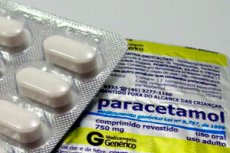New publications
A little-known effect of drugs on humans has been uncovered
Last reviewed: 02.07.2025

All iLive content is medically reviewed or fact checked to ensure as much factual accuracy as possible.
We have strict sourcing guidelines and only link to reputable media sites, academic research institutions and, whenever possible, medically peer reviewed studies. Note that the numbers in parentheses ([1], [2], etc.) are clickable links to these studies.
If you feel that any of our content is inaccurate, out-of-date, or otherwise questionable, please select it and press Ctrl + Enter.

It turns out that many common medications can affect a person's personality traits. After completing a course of treatment, the patient may become nervous, angry, and even gambling.
Medicines "interfere" with brain activity to one degree or another. For example, the usual paracetamol, drugs against asthma and high cholesterol can increase aggression and aggravate neuroses. In some people, such side effects are almost not manifested, while in others they can acquire a pronounced character.
Dr. Mishkovsky, representing Ohio University, noted the negative effects of taking paracetamol, namely, a decrease in the activity of some brain areas. One of the affected areas is responsible for the emotional and empathic sphere. It is noteworthy that paracetamol successfully alleviates "psychogenic" pain, but at the same time deprives the patient of compassion, reduces the ability to be happy for others.
Anti-asthma medications, as scientists claim, cause attention deficit hyperactivity disorder. At the same time, the risk of developing the problem is present in approximately every second patient taking these medications. The mechanism of the disorder's occurrence remains a mystery to specialists.
Antidepressants help protect many people from depression and suicide. However, they can also adversely change a person's personality. Thus, it has been experimentally proven that the antidepressant Paroxetine leaves an imprint on the degree of neuroticism - after treatment with the drug, emotional instability and anxiety increase, and low self-esteem develops.
Professor Golomb, a representative of the University of California, studied the impact of statins - drugs used to treat high cholesterol. Long-term use of these drugs was often accompanied by the appearance of uncontrollable bouts of anger and aggression. However, these symptoms disappeared almost immediately after the end of the course of treatment.
Unfortunately, many patients do not pay attention to changes in themselves, and, even more so, do not track the connection between such changes and taking medications. Dr. Golomb gave the example of his patient, who stopped treatment with statins several times and then started it again until he realized that the negative changes were due to the treatment. True, sometimes such an understanding occurs late - people lose families, friends, etc.
Scientists point to the need for further experiments. This issue needs to be studied thoroughly, because the effects of many medications are multifaceted and unpredictable, and often represent a complex unsolved mystery. It is also impossible to refuse such drugs, since in the vast majority of cases they improve the quality of life of patients and often prevent death.
Details of the problem are described on the BBC website
